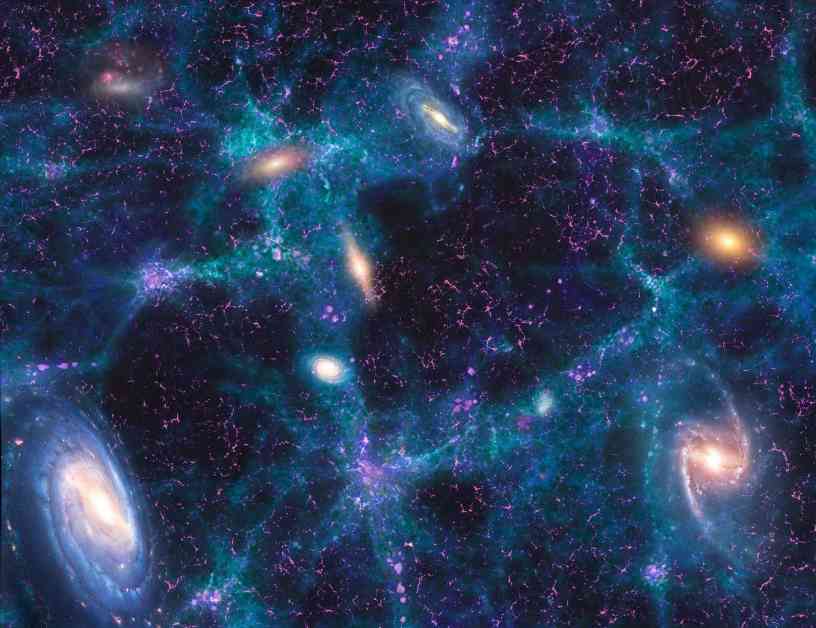Are We Truly Just a Speck in the Universe?
In a vast universe filled with galaxies, stars, and planets, where does humankind fit in? For centuries, astronomers have adhered to the cosmological principle, which suggests that there is nothing particularly special about our place in the cosmos. However, recent observations have begun to challenge this long-standing belief, raising questions about the true nature of our universe.
The Quest for Cosmic Homogeneity
The cosmological principle posits that the universe is uniform and consistent, with the same basic properties evident everywhere we look. This idea has guided astronomers in their exploration of the cosmos, allowing them to make predictions about everything from the distribution of dark matter to the likelihood of finding habitable planets beyond our solar system.
Imagine the universe as a vast beach, with each grain of sand representing a galaxy or star system. Under a microscope, each grain appears unique, but from a distance, the beach appears as a seamless expanse of golden sand. Similarly, astronomers have viewed the universe as a smooth and homogeneous entity, devoid of any special regions or features.
Cracks in the Cosmic Facade
Despite the widespread acceptance of the cosmological principle, recent discoveries have cast doubt on its validity. Astronomers have identified structures, such as the Giant Arc and the Big Ring, that challenge the supposed uniformity of the universe on a massive scale. These anomalies suggest that there may be larger variations and complexities in the cosmos than previously thought.
Furthermore, observations of the cosmic microwave background, the light remnant of the big bang, have revealed puzzling fluctuations that defy random distribution. Scientists like Dragan Huterer have raised concerns about these discrepancies, pointing to the limitations of our current understanding of the universe.
The Search for Cosmic Truth
While the cosmological principle remains a cornerstone of modern cosmology, astronomers are actively investigating its potential shortcomings. The concept of cosmic variance, which accounts for uncertainties in observational data, has been proposed as a possible explanation for the observed deviations from cosmic uniformity.
As researchers continue to probe the mysteries of the universe, the debate over our place in the cosmos rages on. Are we merely insignificant observers in a vast and unchanging universe, or do we hold a unique perspective on the cosmic stage? The quest for answers continues, fueled by curiosity, skepticism, and a deep-seated desire to unravel the secrets of the cosmos.




